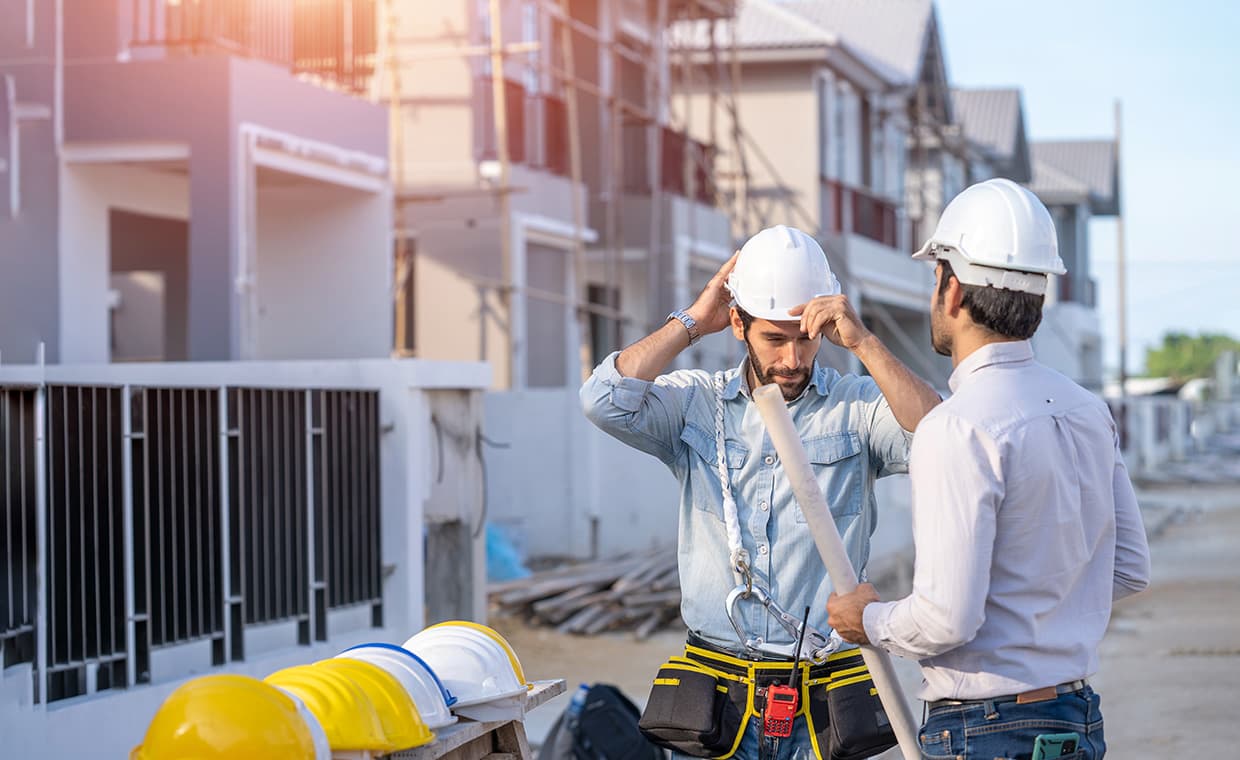
Civil engineering is the branch of engineering that uses mathematical and scientific knowledge to enhance infrastructure like bridges, dams, buildings, roads, trains, and dams, as well as standard utilities, to better people’s lives and our society. The design, building, and maintenance of the built environment are subjects of many sub-disciplines in civil engineering. Engineers are responsible for almost all the construction around us, including roads, airports, buildings, and bridges. They are crucial to building a country’s infrastructure. However, significant roles also come with great responsibilities. Nearly all civil engineers must keep a strict schedule and work long hours. Civil engineers have a societal obligation to maintain and modify the structures we rely on daily and deal with construction issues. They also modify the infrastructure to tackle the problems posed by natural disasters, population growth, and climate change. Given these challenges, many professionals seek to expand their expertise through an online civil engineering master’s program, which offers flexibility while equipping them with advanced knowledge in the field. However, in addition to their busy schedules, civil engineers encounter other challenges specific to their line of work. This article explores these challenges in depth, focusing on challenges faced by civil engineers on construction site.
Challenges Faced by Civil Engineers on Construction Site
01. Environmental Problems

The environment presents risks for timely project completion because construction is an outdoor industry. As a result, meeting deadlines for engineers becomes difficult. Occasionally, the construction site must be closed due to safety issues posed by natural calamities. Natural disasters, flooding, blizzards, heat waves, and contamination are just a few examples of environmental hazards. These are the outcomes of the underlying site circumstances, the weather, natural calamities, and damage to the site controls. Air pollution from fugitive dust emissions is undoubtedly a factor, and the chemicals employed to remove it are usually not eco-friendly. This is one of the challenges faced by civil engineers to ensure that each structure is sustainable and environment-friendly.
02. Proper Groundwater Management

Due to increased population and economic development, groundwater use has been steadily increasing, placing more pressure on effectively managing this natural resource. Given how vital groundwater is to our daily activities like drinking, cooking, and cleaning, it is impossible to overstate the social repercussions of poor groundwater management. As they continue, groundwater shortages will become more of a problem in our daily lives. Sub-surface water contamination has threatened the purity of groundwater. If poorly handled, toxins or contaminants in underground water can harm the underground ecosystem and the lives of aquatic plants and animals, significantly impacting the environment. To address the challenges of groundwater management, it is appropriate to develop supporting principles, such as collaboration tools, networks for participation, and information that can enable the application of adaptive water management approaches and result in an institutional change in groundwater management.
03. Health Risks for Engineers

Civil engineers prioritise health and safety, especially on construction sites where potential risks can lead to accidents. High fugitive dust emissions pose a significant health risk to employees and nearby residents, impacting labour productivity and construction costs.
The construction sector has one of the highest injury rates, prompting governments to enforce regulations for civil engineer safety. Adhering to these regulations is crucial, including the proper use of safety equipment to prevent serious injuries.
04. Contractual Disputes

Numerous contractual conflicts may occur throughout a project. These may be associated with job variations, property damage sustained on-site, or issues with craftsmanship. The duties of civil engineers also include handling these types of disputes. Before accepting the job, civil engineers must review the project submissions and supporting documentation. Contractual concerns, for example, poor workmanship, property damage, repairs, and payment disputes, are very likely to arise, even during on-site employment. It is, therefore, advisable to thoroughly review the contracts before finalising the transaction. After all, taking precautions now is always preferable to dealing with legal problems later. This aids in comprehending the nature of the project and directs the engineers in choosing the right course of action. In addition, numerous outside parties—including painters, plumbers, suppliers of raw materials, and electricians—are involved in a project. A civil engineer oversees them all and completes the necessary work.
05. Various Technical Site Problems

For everyone, construction sites present the most significant obstacles. The civil engineer is the primary figure who guides paper sketches into actual physical objects. The site has a lot of foreseeable as well as undesirable and unanticipated issues. A lot happens between design and construction. Here are some technical challenges faced by civil engineers on construction site:
- Safety and quality are not implemented correctly on construction sites.
- Drawings fail to reflect the changes in the field.
- Underground surprises such as buried utilities, outdated foundations, etc.
- Owners of the project run out of money or shift ownership
- Delayed delivery of building supplies, causing a project time delay.
- Political interference.
- Every technical action that takes place on the site is under the control of the site engineer. It relies on your organisation and comprises planning, lining, oversight, implementation, and planning.
- A site engineer’s duties also include some quantity surveying and planning for everyone at your location, including the operator’s labour contractor.
06. To Ensure Regulation Compliance

A successful building project requires a massive team of workers; one individual cannot complete it. A civil engineer oversees all construction processes and ensures compliance with all laws and regulations. He is accountable for any rules broken by his staff. For example, laws govern transportation, materials, and site permission. These constraints include measures for worker health and the environment. Furthermore, laws and regulations are prone to change. Thus, engineers must stay updated with these changes. When a third party is involved in the construction process, there are additional aspects to consider and rules to follow. All these factors make the job of a civil engineer complicated.
07. Creating Sustainable Communities

A significant component of civil engineering is creating the communities of the future. Infrastructure can impact the environment, economy, housing options, and other aspects that might enhance people’s lives. One area of interest for many civil engineers is environmental sustainability. Construction can have a negative impact on the environment. Using eco-friendly materials, techniques, and designs can reduce this impact. Civil engineers can assist firms in achieving their sustainability objectives as they seek out more environmentally friendly practices.
08. Other Challenges
In addition to these difficulties, civil engineers also encounter numerous other short-term challenges.
- Regarding unforeseeable occurrences like power outages and natural or environmental catastrophes, engineers genuinely have nothing to complain about.
- They must put in long days of work frequently; sometimes work hours extend beyond 14 hours a day.
- The project manager, workforce, clients, and other stakeholders are just a few of the many people that civil engineers must interact with on the job.
- They might have to stay put and complete their work at the location alongside the rest of the crew.
- To handle conflicts at work and other issues, they must have high tolerance levels.
- They must know what to do, when, and how.
- Plans can change over time, including the project’s architecture and construction.
Key Takeaway
Navigating through the challenges faced by civil engineers requires not just technical expertise but also a deep commitment to societal well-being. Civil engineers play a pivotal role in enhancing and maintaining essential infrastructure, facing hurdles that extend beyond their demanding schedules. By addressing these challenges head-on, the field of civil engineering continues to evolve, contributing to the resilience and sustainability of our communities.
Don’t forget to check out some exciting articles mentioned below:
Welfare Facilities on Construction Site for Labourers
Construction Safety Tips for Workers’ Well-Being
Author Bio
Sabina






























